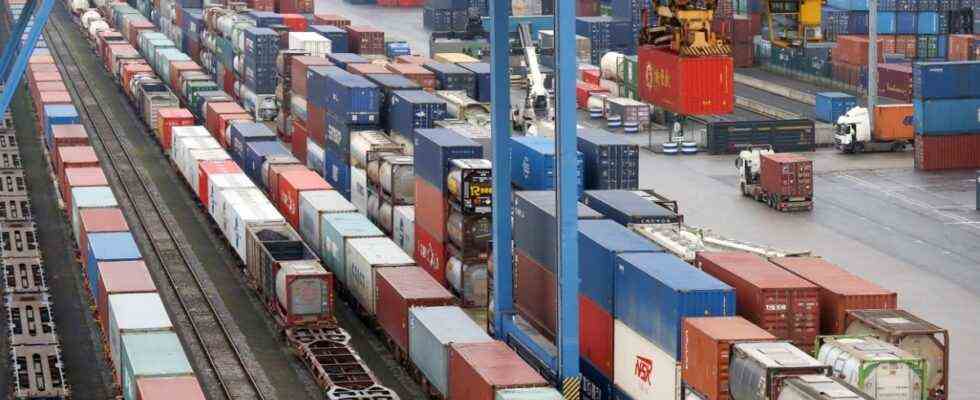Ursula von der Leyen has seldom received as much praise from the European Parliament as this Wednesday after the presentation of her project called “Global Gateway”. Christian Democrats, Social Democrats and the Greens also praised the Commission President for her plan that the EU should mobilize 300 billion euros over the next six years to finance infrastructure projects around the world – not least in response to the “New Silk Road” with which China is making its economic economy and trying to expand political influence. Von der Leyen “thankfully made use of their authority to issue guidelines,” praised the Green Reinhard Bütikofer. He is one of the leading MEPs who have been calling for such a strategy for a long time and who are trying to get the Commission going.
The European Union as a geopolitical player: this is what inspires the fantasies in Brussels. But it is not a new phenomenon. Jean-Claude Juncker, von der Leyen’s predecessor in the office of Commission President, spoke of “world politics”. The predecessor of the Global Gateway comes from his tenure. The awkward name for it was EU-Asia Connectivity Strategy and means the rather banal realization that bridges, roads, tracks or cables are suitable for connecting people and entire nations with one another. The EU has agreed on specific projects with Japan and India, for example. Von der Leyen is building on the concept with her Global Gateway, which she announced in her speech to the “State of the Union” in Strasbourg in September and which she has now presented.
Of the 300 billion euros awarded, up to 135 billion euros are to be raised through the Fund for Sustainable Development and 145 billion euros through other European financial institutions. Subsidies of up to 18 billion euros are planned from other EU programs. For example, fiber optic cables for high-speed Internet connections, new railway lines or plants for the production and liquefaction of green hydrogen could be promoted. The EU also wants to finance projects in the areas of health, education and research.
The whole “Team Europe” is behind the concept, said von der Leyen on Wednesday, not only the Commission, but also the 27 member countries. In addition, private capital should be lured into the projects. The European Union guarantees its partners transparency, sustainability and the participation of the respective countries and municipalities. The Commission President said that the financing would be offered on fair and favorable terms in order to limit the risk of a debt crisis.
The disappointment of the Eastern Europeans should be dampened
Ursula von der Leyen also sees the project as a continuation of the EU plans for climate protection and digitization, enshrined in the Green Deal and in the Corona Reconstruction Fund – an offer to other countries in Europe, Africa, Asia and South America to join the EU’s path and not the Chinese way. The Global Gateway is a “real alternative” to the New Silk Road, said von der Leyen. Projects for the development and expansion of international trade and infrastructure networks between China and countries in Africa, Asia and also in Eastern Europe have been operating under the name since 2013. It is precisely there that the European Union is now attempting with large infrastructure projects to dampen the disappointment that the countries concerned still have no concrete prospect of accession to the EU.
Global Gateway has the potential to make the European Union an effective geopolitical actor, says the permanent representative of the Federal Republic of Germany to the EU, Michael Clauss. The offer of rule- and value-based cooperation on equal terms will be an attractive alternative to the Chinese Silk Road for many partner countries. Representatives of the German economy were also impressed in their initial reactions. However, the European Union is by no means alone in its plan to curb the Chinese urge to expand and to spread environmentally friendly infrastructures around the world. That could also be a problem.
British Prime Minister Boris Johnson announced at the climate summit in Glasgow a program called the “Clean Green Initiative”, endowed with three billion pounds. Also in Glasgow, Ursula von der Leyen spoke to US President Joe Biden about his investment program called “Build Back Better World”. At least on this point, Biden has carried on the legacy of his predecessor Donald Trump. Trump’s strategy to stop China’s influence was called the “Blue Dot Network”. The question now will be whether all these programs compete with one another or whether the western states act together as a real alternative to China’s New Silk Road.

